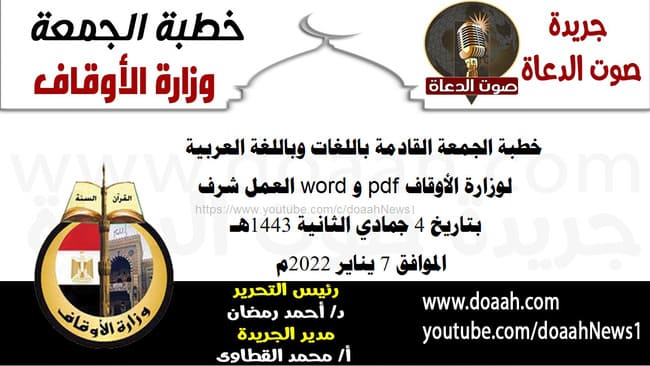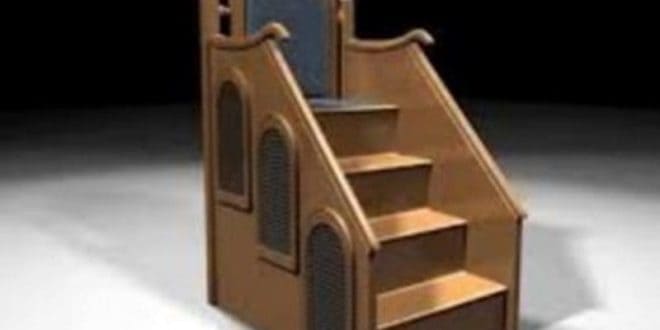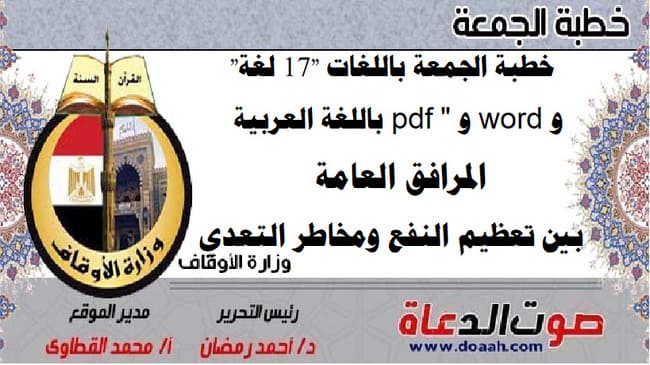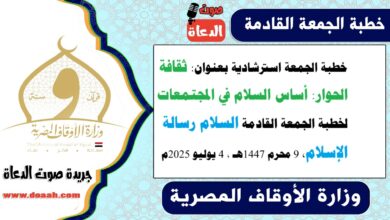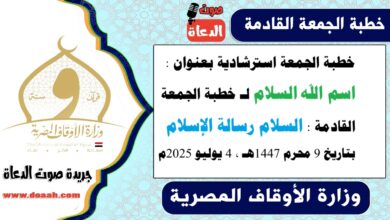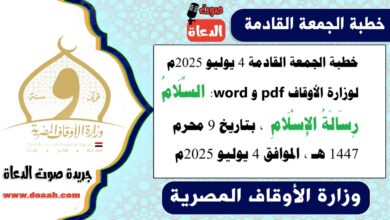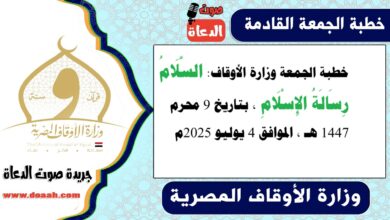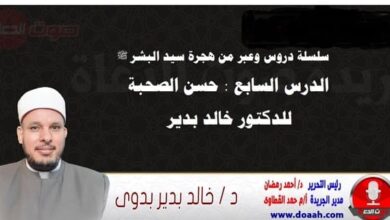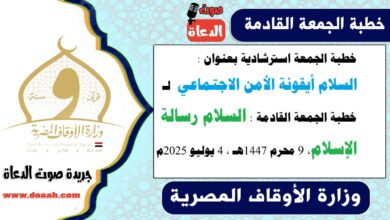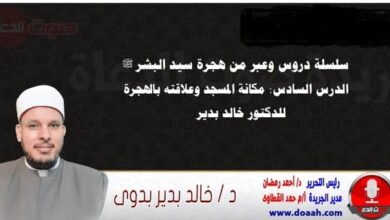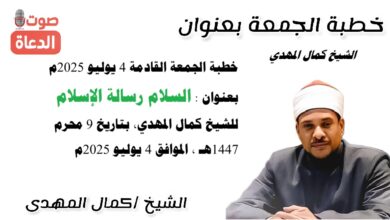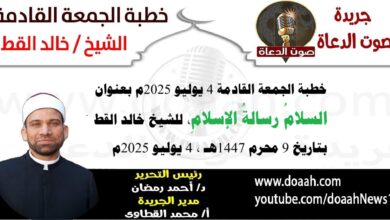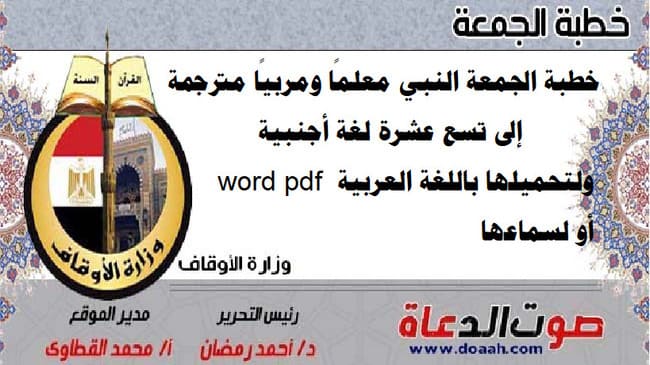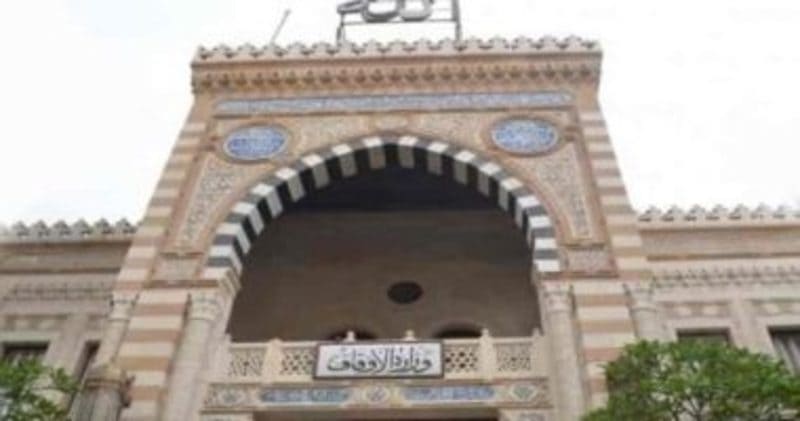
All praise is due to Allah, the Lord of all worlds, Who says in His Ever Glorious Book, “As for those who say, ‘Our Lord is Allah,’ and take the straight path towards Him, the angels come down to them and say, ‘Have no fear or grief, but rejoice in the good news of Paradise, which you have been promised.” I bear witness that there is no god but Allah, and that Muhammad is His Servant and Messenger. May Allah’s Peace and Blessings be upon him, his Household, Companions and upon those who follow their path to the Day of Judgment
As we see, days, months and years pass very quickly. The life of man is just a counted number of breaths and every human has a predetermined age. This should be an admonition for people as the Almighty Allah says, “And He [Allah] is the One Who causes the day and the night to alternate, [as a sign] for whoever desires to be mindful or to be grateful.”
The reward of an accepted Hajj by Allah is to forgive one’s sins, so that a pilgrim returns as sinless as a newly born child, as the Prophet (PBUH) said, “Whoever performs Hajj and does not have sexual relations (with his wife), nor commits sin, then he returns from Hajj as pure and free from sins as on the day on which his mother gave birth to him.” Thus, a wise person has to take advantage of this virtue granted to him by Allah, and avoid all sins and approach Allah with a pure heart and sincerity.
A person who has performed Hajj must be thankful to the Almighty Allah for allowing him to perform this act of worship. Being thankful here means to continue performing righteous deeds, since righteous deeds are not confined only to certain times or certain places. Rather, they may be performed at any time as long as a person has attained the conditions to perform them. This was the practice of the Prophet (PBUH) as he used to keep on performing good deeds in compliance with the saying of Allah “Worship your Lord until what is certain comes to you,” and His saying, “The moment you are freed [of one task] work on, and turn to your Lord for everything,” that is: when you finish one act of worship, begin another act, seeking the pleasure of Allah, the Most High.
The continuity in performing acts of obedience to Allah is the most pleasing thing to Allah and is a sign for one’s good ending of his life. ‘Aisha is reported to have said that the Messenger of Allah (PBUH) was asked about the act most pleasing to Allah. He replied, “That which is done continuously, even if it is small.” So, let him be happy the one whom Allah guides to perform acts of obedience, help people and spread goodness in his society and country.
If Allah guides a believer to perform Hajj, this does not mean that it is the final deed that a person can do, because acts of worship are numerous. He may approach the Almighty Allah through supererogatory prayers and fasting, helping people, caring for the orphans, visiting sick people, etc because the Almighty Allah raises ones degrees as a reward for these actions. Abu Hurayrah narrated that the Messenger of Allah (PBUH) said: ‘Allah say: “… And My servant does not draw near to Me with anything more loved to Me than the religious duties I have obligated upon him. And My servant continues to draw near to me with nawafil (supererogatory) deeds until I Love him. When I Love him, I am his hearing with which he hears, and his sight with which he sees, and his hand with which he strikes, and his foot with which he walks. Were he to ask [something] of Me, I would surely give it to him; and were he to seek refuge with Me, I would surely grant him refuge.’”
It is necessary that one’s performance of Hajj be reflected on his behavior and tolerance in dealing with other people. This is a sign of Allah’s acceptance of one’s Hajj. Thus, he should deal with people with good manners, correct his shortcomings that he used to do before Pilgrimage, behaves in a good way with his family, father, mother, husband and son, and have good ties with his relatives, as well as doing all acts of righteousness, as the Almighty Allah said, “Goodness does not consist in turning your face towards East or West. The truly good are those who believe in Allah and the Last Day, in the angels, the Scripture, and the prophets; who give away some of their wealth, however much they cherish it, to their relatives, to orphans, the needy, travellers and beggars, and to liberate those in bondage; those who keep up the prayer and pay the prescribed alms; who keep pledges whenever they make them; who are steadfast in misfortune, adversity, and times of danger. These are the ones who are true, and it is they who are aware of Allah.”
Hajj must leave its moral effect on the behavior of the pilgrim; Hajj is not a void ritual act performed without a purpose or a goal. Rather, it is an act of worship that is obliged to purify humans. The Almighty Allah said, “The pilgrimage takes place during the prescribed months. There should be no indecent speech, misbehaviour, or quarrelling for anyone undertaking the pilgrimage- whatever good you do, Allah is well aware of it. Provide well for yourselves: the best provision is to be mindful of Allah- always be mindful of Me, you who have understanding.” Also, the Prophet (PBUH) said, “Whoever performs Hajj to this House [Ka`ba] and does not approach his wife for sexual relations nor commit sins (while performing Hajj), he will come out as sinless as a newborn child.” Al-Hasan Al-Basri said, “The reward of an accepted Hajj is paradise, and the sign for this is that a pilgrim returns from Hajj abstinent from this world and desiring the hereafter, andto abandon whatever evil deedshe used to do.”
If acts of worship do not affect man’s morals and refine his behavior, they have no value in the world or in the hereafter. The Prophet (PBUH) said, “Do you know who is a poor? They (the Companions) said: A poor man amongst us is one who has neither dirham with him nor wealth. He (PBUH) said: The poor of my Umma would be he who would come on the Day of Resurrection with prayers and fasts and Zakat, but he hurled abuses upon others, brought calumny against others and unlawfully consumed the wealth of others and shed the blood of others and beat others, and his virtues would be credited to the account of one (who suffered at his hand). And if his good deeds fall short to clear the account, then his sins would be entered in (his account) and he would be thrown in the Hell-Fire.” Also, He (PBUH) was asked about a woman who used to do much prayer, fasting and charity, but she used to behave badly to her neighbors, he (PBUH) said, “She will be in the Hellfire.” Then, he (PBUH) was asked about another women who used to do little prayer, fasting and charity, but she never harmed her neighbors, he (PBUH) said, “She will be in the Paradise.
Good end is one of the deeds that man shall be keen on. It means that Allah, Most High, will guide the slave to keep away from doing what incurs His Wrath, to facilitate for him the ways to repent from sins and acts of disobedience and to enable him to do acts of obedience and good deeds, and then he dies on that good case.
Just as man’s good life in this worldly life relies on his deeds, guiding him to good deeds is thus a sign of good deeds; a fact which is recorded by the Prophet (PBUH) in his Hadith, “Surely, (the rewards of) deeds are decided by their last actions. Another narration yet reads, “‘Deeds are like vessels. If the lower part is good then the upper part will be good, and if the lower part is bad then the upper part will be bad.’” Thus, man shall strive to attain a good end and to be ready to the meeting of Allah through doing good deeds, a point which is deduced from the Saying of Allah, Glorified is He, “So whoever would hope for the meeting with his Lord – let him do righteous work and not associate in the worship of his Lord anyone.” As such, whoever fears Allah, obeys His Orders and keeps away from His Prohibitions would be guided to good deeds on which he shall pass away, a fact demonstrated by the Messenger of Allah (PBUH) who said, “When Allah wants good for a slave, He puts him in action.” It was said: “How does he put him in action O Messenger of Allah?” He said: “By making him meet up with the righteous deeds before death.” That is to say that man’s last actions are what decide his end; if Allah guides a slave to obedience and worship and constantly do good deeds, his end will certainly be a good one and he will be of the prosperous who will be admitted into the Paradise. Allah, Most High, says, “And as for those who were [destined to be] prosperous, they will be in Paradise, abiding therein as long as the heavens and the earth endure, except what your Lord should will – a bestowal uninterrupted.”
One of the lessons deduced from Hajj is that the slave- pilgrims and others- shall show total surrender to Allah, Most High, while seriously considering the rationale. He shall firmly believe that the matter belongs completely to Allah and that what He, Most High, destines will certainly be realized. He, the Almighty, says, “It is not for a believing man or a believing woman, when Allah and His Messenger have decided a matter, that they should [thereafter] have any choice about their affair. And whoever disobeys Allah and His Messenger has certainly strayed into clear error;” “Whatever Allah grants to people of mercy – none can withhold it; and whatever He withholds – none can release it thereafter. And He is the Exalted in Might, the Wise;” and “And if Allah should touch you with adversity, there is no remover of it except Him. And if He touches you with good – then He is over all things competent. (17) And He is the subjugator over His servants. And He is the Wise, the Acquainted [with all]. (18)” It is thus clear that total surrender to Allah is of the signs of belief and pillars of Islam. So that this will be realized, man shall have good belief in Allah; so when he is satisfied with Allah’s Destiny and totally relies on Him, he will gain satisfaction, serenity and safety.
With that said, I ask Allah to forgive me and you
All praise is due to Allah, Lord of the Worlds; I bear witness that there is no god but Allah; I bear witness that Muhammad is His slave and Messenger; may Allah’s Peace and Blessings be him, his family and companions.
Muslim brothers,
Pilgrims have come back with their sins totally forgiven and their efforts appreciated. They are also rewarded for their deeds. Yet, they shall beware of being deceived by people’s praise to him, since labeling one as “a pilgrim” is not at all one of the main fruits of performing this duty, nor is it a reason for feeling pride and showing off. On the contrary, he, after coming back, shall show modesty and fear Allah. Hajj is in actuality, duty of great reward; whoever observes it and endures its hardships will for sure find its fruit in his heart, a matter that will be in turn reflected in his life as he will show modesty before Allah; his soul will denounce arrogance and his obedience will be free from showing off. So, whenever he sincerely does any act of obedience while having good intention, this will certainly cause him to do another good deed; the situation will continue as such from an act of worship to another and from an act of obedience to another until he reaches the level of Ihsan (i.e. benevolence), which is a sign of accepting man’s obedience.
Allah, Most High, mentions that the true believers who hasten to do good deeds fear their deeds will not be accepted, which is why they fervently hope Allah will accept them and reward them in return “Indeed, they who are apprehensive from fear of their Lord (57) And they who believe in the signs of their Lord (58) And they who do not associate anything with their Lord (59) And they who give what they give while their hearts are fearful because they will be returning to their Lord – (60) It is those who hasten to good deeds, and they outstrip [others] therein.” Commenting on these verses, Ibn Kathir, may Allah have mercy upon him, said, “even though they are true believers of good deeds, they fear Allah. ‘Aishah, Mother of the Believers, Allah be pleased with her, said, “I said: ‘O Messenger of Allah, ‘And those who give that (their charity) which they give (and also do other good deeds) with their hearts full of fear.” [23:60] Is this the one who commits adultery, steals and drinks alcohol?’ He said: ‘No, O daughter of Abu Bakr’ – O daughter of Siddiq – rather it is a man who fasts and gives charity and prays, but he fears that those will not be accepted from him.’”
It is thus clear that the true believer does not care about doing many acts of worship and recommended acts in the same way he cares about the acceptance/not acceptance of deeds and as much as these acts of worship are positively reflected in his life. Allah, Most High, ordered His Prophet (PBUH) to strive in doing acts of obedience and not to humiliate any deed that he will consequently abandon it and not to show admiration for his many deeds, since Prophet Muhammad (PBUH) clearly stated that pride is one of these things that render the reward of deeds null. Ibn ‘Abbas, Allah be pleased with them, narrated that the Messenger of Allah (PBUH) said, “The three things that render the reward of deeds null are: feeling proud of opinions; stinginess being obeyed; and desired being followed.”
O Allah, help me remember You, expressing gratitude to You and worship You in the best manner; and guide us to keep on the Straight Path of Obedience and Worship
_____________________________________
للإطلاع علي قسم خطبة الجمعة باللغات
للإطلاع ومتابعة قسم خطبة الأسبوع
للمزيد عن أسئلة امتحانات وزارة الأوقاف


